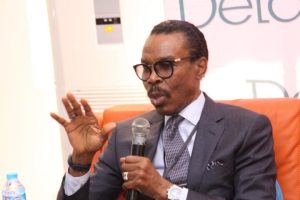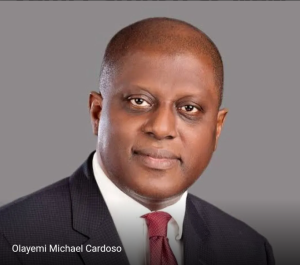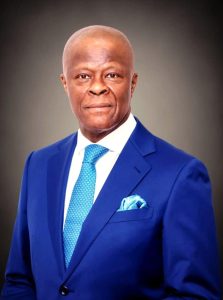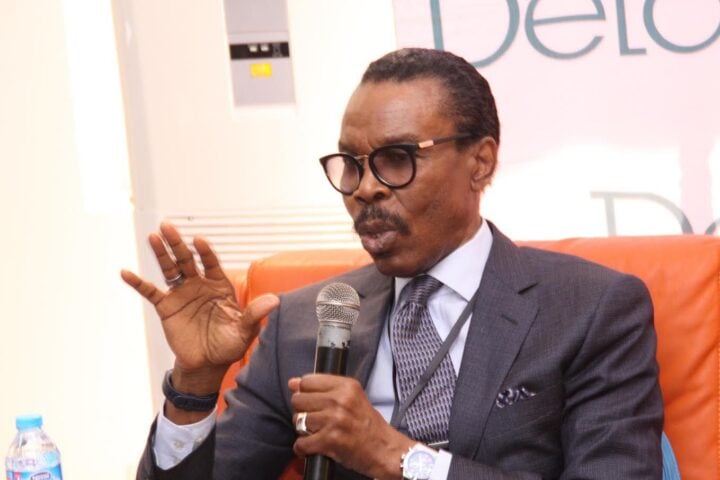Nigeria Winning On The Economic Front
• As inflation eases and GDP shows sign of growth
By the Telegraph

Nigeria appears to be heading for an economic recovery, according to experts who have eyes on her economy.
There are indications that the country’s inflation is easing despite projections by the World Bank which show poverty rate is rising.
Close on the heels of a gradual drop in the pace of inflation in the country is a gradual growth in GDP.
Bismarck Rewane, the Chief Executive Officer of Financial Derivatives Company (FDC) in a paper presented at the Lagos Business School noted Nigeria’s inflation is moderating.
He said there were growing signs that the nation’s GDP is recording a growth pattern that is promising.
The Cable quotes Rewane as saying Nigeria’s economic recovery is real and sustainable.
Presenting a paper titled ‘Reality Check: Is Nigeria’s Economic Recovery Authentic? Yes, It Is’, Rewane said the country’s economic outlook looks less gloomy.

The Port Harcourt Telegraph reports that as of August 2025, Nigeria’s headline (all-items) inflation rate was 20.12 % (year-on-year), down from 21.88 % in July 2025.
Core inflation (which excludes more volatile items like food and energy) was about 20.30 % in August 2025.
According to Nigeria’s National Bureau of Statistics, the all-items inflation series under its newer base year (2024 = 100) shows a sequence: 24.48 %, 23.18 %, 24.23 %, 23.71 %, 22.97 %, 22.22 %, 21.88 %, 20.12 % (i.e. trending downward)
Earlier in 2025, inflation had been reported at 24.48 % in January after a statistical “rebasing” of the CPI.
Many forecasts expect the trend downward to continue, with projections that inflation might fall to somewhere around 17.0 % to 17.9 % by November 2025 under favorable conditions.
Said an expert, “inflation is still very high historically, but there is evidence it is moderating.”
Is the Inflation Rate Decreasing?
Yes, there are signs of a decline from peak levels according to facts that are emerging:
The downward movement in inflation through 2025 (from over 20 % to just above 20 %) suggests a gradual easing.
The decline has been partly assisted by a revision in how inflation is measured (rebasing the CPI to a more current base year, changing weights in the basket of goods) which tends to adjust reported rates, the Port Harcourt Telegraph further reports.
However, even with the moderation, inflation remains well above what is generally considered a “comfortable” or “low” rate in macroeconomic policy for emerging markets.
Thus, while inflation is high, the direction is downward meaning policies that are being implemented by Tinubu’s team are beginning to bear fruit.
Inflation is not yet low, and the Nigerian authorities have not claimed that it is, but it is clear inflation appears to be moderating.
Rewane’s analysis of Nigeria’s inflation is apparently supported by qualitative and quantitative data that are being gathered in the field which show that the economy is gradually recovering.
His suggestion that there is a growth in the Gross Domestic Product, GDP, passes the acid test.
Current GDP & Size of the Economy

According to TradingEconomics / World Bank data, Nigeria’s GDP in 2024 was about USD 187.76 billion (nominal)
The IMF’s World Economic Outlook and related data show Nigeria’s GDP in current U.S. dollars is around USD 188.27 billion in recent projections.
However, Nigeria’s National Bureau of Statistics (NBS) recently rebased its GDP (changing the base year for its calculations) and revised the size of the economy upward: the new figure is N372.82 trillion (≈ USD 244 billion) for 2024 at current prices.
This rebasing reflects inclusion of previously undercounted sectors (especially digital, informal, etc.).
The rebasing also alters debt/GDP ratios and relative metrics. So, depending on which base and measurement is used, the “official” GDP differs. But with the rebased figure, the economy is larger than before.
Is GDP Growing?

Yes — Nigeria is experiencing positive growth, and experts say there are signs of acceleration in certain quarters.
In Q4 2024, Nigeria’s real GDP grew by 4.6 % year-on-year, which was a strong performance for that quarter.
For the full year 2024, the economy is reported to have grown around 3.4 % (some sources) or around 3.6 % (World Bank projection) depending on measurement.
The NBS also reports that in Q2 2025, the non-oil sector grew by 3.64 % (year-on-year) and the oil sector registered a striking 20.46 % growth — though oil is volatile and highly influenced by global prices.
The Central Bank of Nigeria (CBN) projects growth of about 4.17 % for 2025 under current policies.
Thus, the overall trend obviously show signs of positive growth, This suggests overall, that despite strong challenges, Nigeria’s economy has began a gradual turnaround.
Rewane who believes tha the downward trend in inflation and an increase in GDP are good signs of recovery described economic reovery as the phase in the economic cycle when growth resumes after a period of economicstagnation and contraction.


